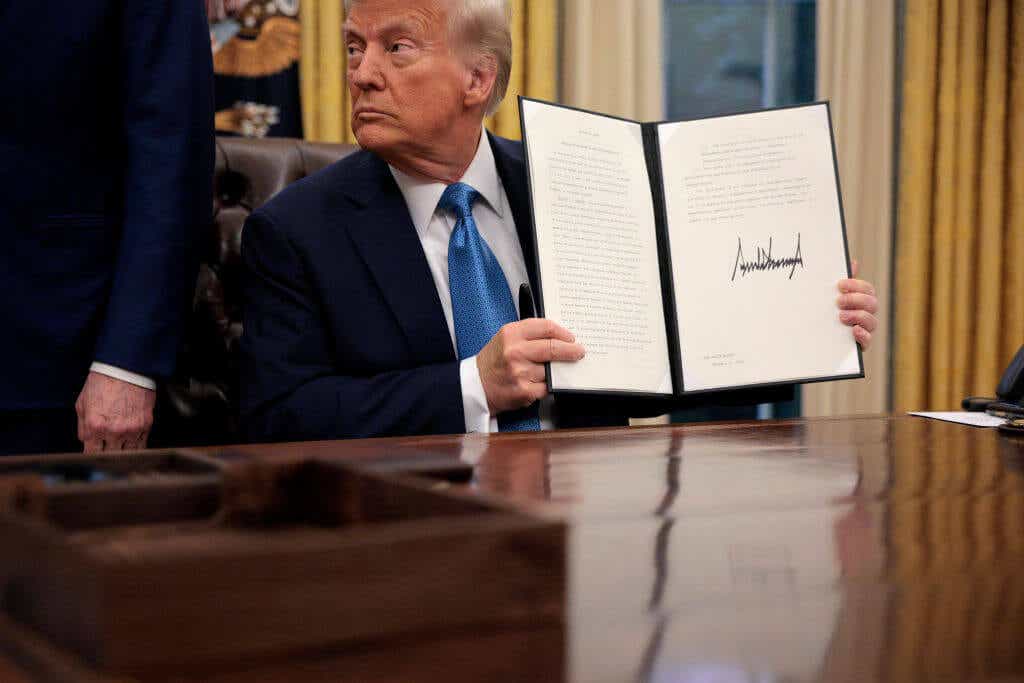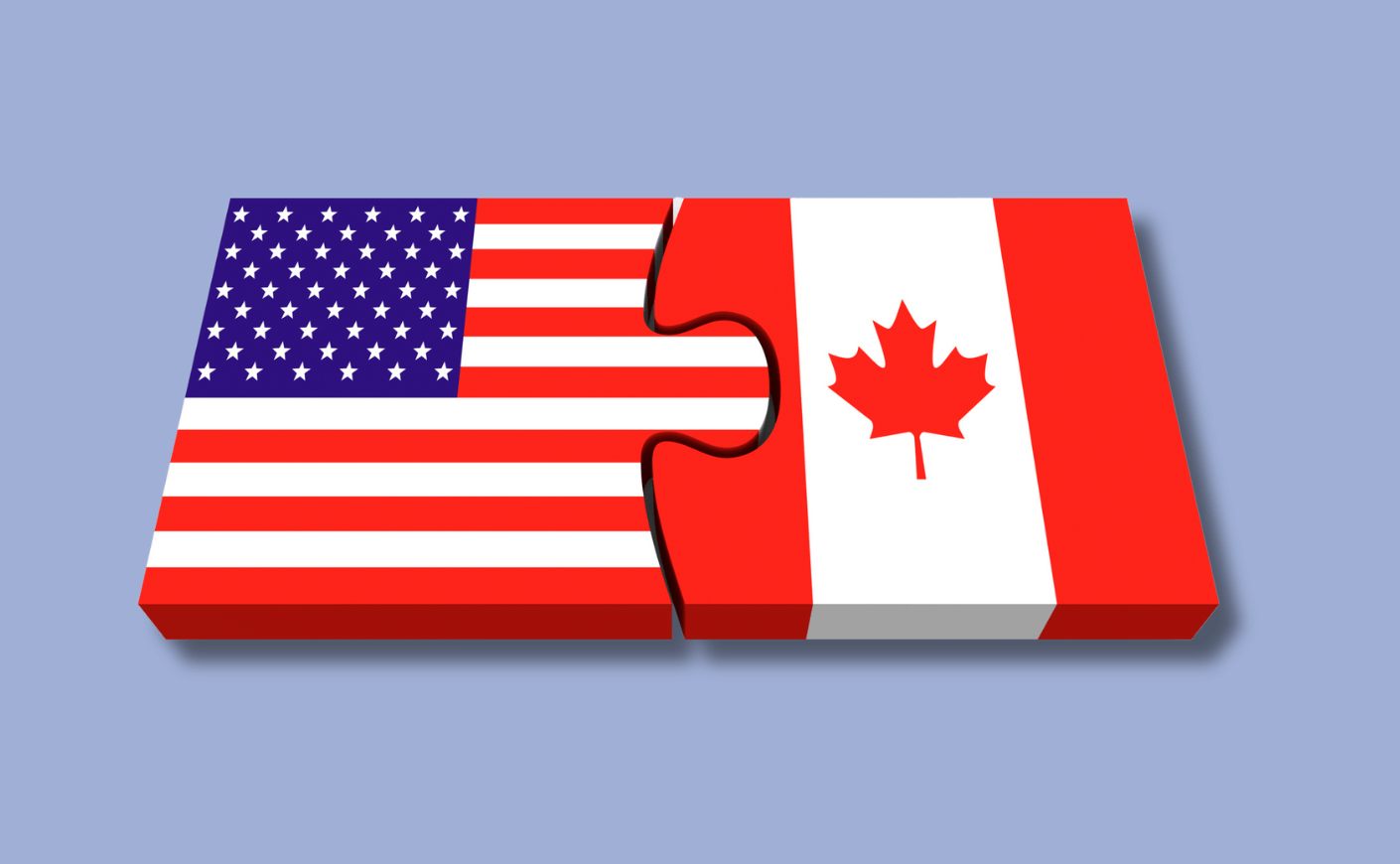Hot air rises — and in this case, it’s hanging over Canada like a toxic cloud.
The first time Donald Trump floated the idea of Canada becoming the 51st state, Canadians like me either laughed or rolled their eyes, dismissing it as just that — hot air.
Like so many across the country, I actually thought it was a joke. Today, no one is laughing. Instead, by linking his ludicrous statement to the threat of catastrophic tariffs, the U.S. president has awakened a sleeping Canadian giant — pride in who we are as a people and as a country.
Canadians are a patriotic bunch, but that patriotism doesn’t usually rely on fiery speeches and self-aggrandisement — except when you add anger to the mix. And right now, there’s plenty of anger. Famously, we have a natural tendency to apologize, but right now we’re through saying “sorry.”
Our anger isn’t just about the sneering jabs at Prime Minister Justin Trudeau — he gets plenty of criticism from Canadians, too. It’s about Trump’s blatant disregard for Canada’s sovereignty that has riled even the quietest patriot.
The President of the United States of America says that Canada is “not a viable country,” which are fightin’ words north of the border. And the weapon Donald Trump has chosen in this battle is the economy itself.

His “51st state” rant rose to the top of chaos mountain when Trump reiterated it the same day he confirmed that Canada (and Mexico) would be hit with a 25% tariff on imports. It’s a move that economic experts agreed would do more damage to American manufacturers and consumers than it would help — but would also devastate Canada and Mexico.
A trade war? At a time when the world economy is already in a fragile state? If the move is part of Trump’s frenzied “flood the zone” strategy — to overload the public with so much tumult at once that nothing is absorbed — it’s definitely making waves here, and the backlash has been swift and sharp.
Canadians, even with their celebrated politeness, are not about to hand over the keys to the country. In a Facebook post, a mum in British Columbia named Mary-Jo Dionne likened this to an Olympic gold medal game, kindly asking everyone to park their politics: “Let’s make this a time of country over party. Let’s make this that time when a small angry little man thought he’d weaken us — because we’re so freaking nice — but in the end he inadvertently united us.”
Yes, we have divisions too and they can get ugly, but right now, Canadians are singing off the same song sheet. The anger has inspired a call to action, with so many immediately vowing to boycott American products, and pledging to support homegrown businesses. A guy in Ottawa is definitely feeling the love — he’s doing a brisk business selling hats exclaiming CANADA IS NOT FOR SALE.
Here’s the thing: the existence of our country is not a 'game.'
But there’s a major logistical problem behind Trump’s bombast: Our economies are so deeply intertwined that even something as simple as a bag of potato chips becomes a geopolitical puzzle. The potatoes might be grown in Canada, but they’re processed and packaged in the U.S. So are they Canadian or American?
Booze is a lot easier to identify, but just as Canadian liquor stores were removing Kentucky Knob Creek bourbon and California cabernet from the shelves, Donald Trump suddenly pushed the pause button. He granted a 30 day delay at the 11th hour with one more shot across the bow. “As a state” he said “it’s different, as a state there would be no tariffs.” He said, “If people want to play the game right, it would be 100% certain that they become a state. But people don’t want to play the game because they don’t have a threshold of pain.”
Here’s the thing: the existence of our country is not a “game,” and Trump’s tariff threats, as one Member of Parliament put it, “are not gunboat diplomacy.” As he said on CNN recently, “This is like Al Capone in his syphilitic period doing a shakedown.”
Trump’s rhetoric often singles out Canada, painting it as a weak link in border security, particularly in the fight against drug trafficking. But let’s look at the facts: In 2023, approximately 21,000 pounds of fentanyl were seized entering the U.S. from Mexico. By contrast, 43 pounds of fentanyl were seized coming from Canada, accounting for 0.02% of fentanyl seizures at the U.S. border. That’s far less than the steady stream of guns that cross into Canada from the U.S.
This is not to downplay our own crisis with opioid addiction — fentanyl has ravaged communities in Canada just as it has in America. But blaming Canada for America’s drug crisis is misleading at best. We should be fighting this together — not creating a war within a war.
The U.S. has historically been Canada’s closest ally, both geographically and in every other way that matters, but the underlying assumption in any good relationship is mutual respect — and that’s taken a huge hit. This week, American athletes were booed during the U.S. national anthem at Canadian sports events — something that would have been unthinkable even a year ago. (To be fair, they booed the anthem but applauded the singer at the end — I did say we’re known for our politeness.)
But even if the U.S. president backtracks on his trade war altogether, repairing this rift will take more than words. Sometimes, “sorry” doesn’t cut it. Even for a Canadian.
Lisa LaFlamme is a Canadian journalist and the host of the Journalists For Human Rights podcast and Carry The Fire podcast.









